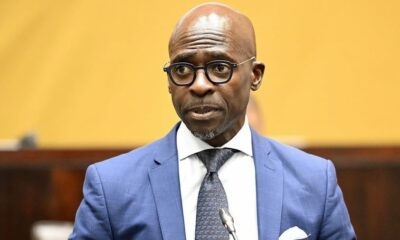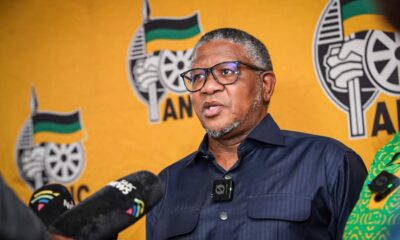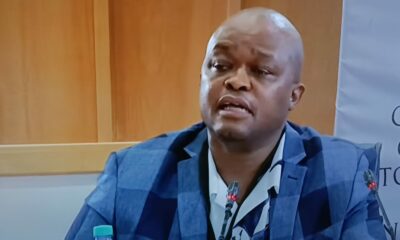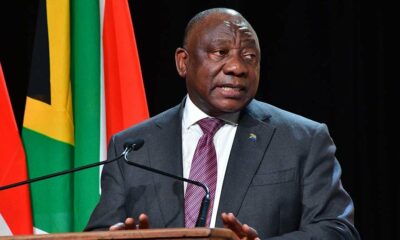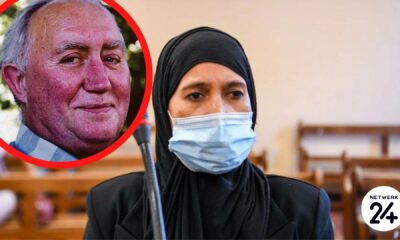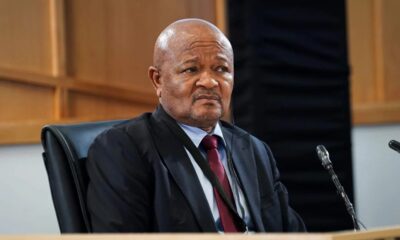News
Ramaphosa Staggering from Crisis to Crisis as Allegations Rock Coalition
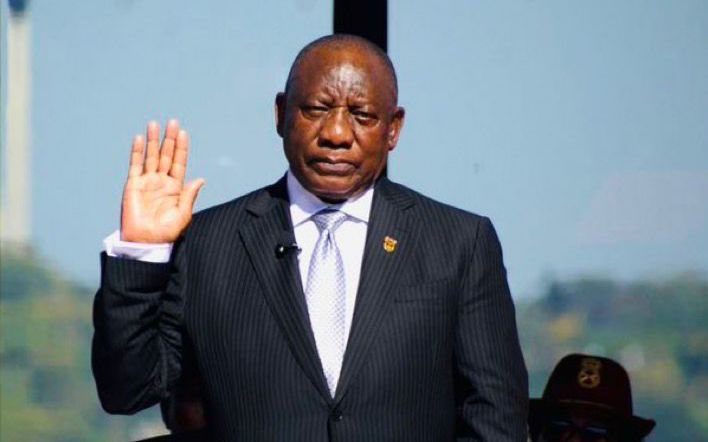
Sabotage claims, coalition infighting, and mounting public frustration leave President Cyril Ramaphosa battling to hold South Africa’s political centre.
South African President Cyril Ramaphosa is once again in the eye of a political storm, lurching from crisis to crisis as tensions mount inside the fragile Government of National Unity (GNU). Just days after touching down in Brazil for the BRICS summit, Ramaphosa was forced to pivot, issuing an emergency statement from abroad as a senior police official accused a cabinet minister of sabotaging investigations into political assassinations.
The allegations, made by KwaZulu-Natal Police Commissioner Lieutenant-General Nhlanhla Mkhwanazi, have triggered a firestorm at home. They go beyond political scandal, they cut to the heart of South Africa’s justice system and raise chilling questions about who’s really protecting whom.
The Accusation That Shook the State
According to Mkhwanazi, a cabinet minister within the ANC actively interfered with probes into political killings, an explosive charge in a country still haunted by more than 480 political assassinations since 2000, over half of them in KZN.
The accused, Police Minister Senzo Mchunu, swiftly dismissed the claims as “baseless.” But the timing, source and substance of the allegations have rattled the public and Ramaphosa’s coalition partners are no longer whispering their discontent.
Coalition on a Knife Edge
Ramaphosa’s GNU forged after the ANC lost its parliamentary majority for the first time in 30 years, was already wobbling under the weight of infighting. The DA had just recently threatened a vote of no confidence after Ramaphosa fired their deputy minister, Andrew Whitfield, for unauthorized travel.
Now, the Mkhwanazi revelations have pushed the GNU into deeper disarray. The Inkatha Freedom Party wants Mchunu suspended and a commission of inquiry launched. The uMkhonto weSizwe Party wants him arrested. And DA leader John Steenhuisen is demanding consistency: “The president has set a bar. Will he hold his own ministers to it?”
Political Violence Still a National Curse
The outcry isn’t just political. It’s deeply emotional for a country that’s seen ward councillors gunned down in public, whistleblowers silenced in their driveways, and criminal networks operating with impunity.
As Ziyanda Stuurman, Cape Town-based analyst and author of a book on policing, puts it: “There just has to be a public statement from the president himself. The silence is dangerous.”
The World Bank estimates that crime, including politically motivated violence, shaves 10% off South Africa’s GDP each year. Trust in the state is not an abstract concept, it’s an economic imperative.
Ramaphosa’s Dilemma: Reform vs Survival
The president is not just balancing coalition politics. He’s also fighting for control of the ANC itself, which is gearing up for a fierce 2027 leadership contest. This is Ramaphosa’s final term as party president, and Mchunu is one of his key internal allies, particularly in driving pro-market reforms that are unpopular with traditionalists.
So while many are demanding that Mchunu be sidelined, Ramaphosa risks losing control of his faction and, potentially, the ANC, if he gives in too easily.
As analyst Prince Mashele notes, “Coalition partners might threaten to walk, but they have their own reasons to stay, power.”
Public Patience Wearing Thin
Despite the global optics of South Africa chairing BRICS and signing new trade pacts, many citizens are more concerned about what’s happening at home. They see a president caught between allies and accountability, coalition partners lobbing ultimatums, and rising criminality unchecked.
On Monday, as the rand dipped against the dollar, some blamed the latest twist in the US-China trade war, while others pointed squarely at South Africa’s unresolved political uncertainty.
No Good Options, But Action Still Required
In his brief statement before departing Brazil, Ramaphosa attempted to reassure the country, saying the matter was being treated as a “grave national security concern.” But the question remains: Will he act?
Because in this moment, doing nothing may be worse than choosing wrongly.
South Africans, weary from decades of corruption, violent politics, and broken promises, aren’t just watching Ramaphosa, they’re judging whether anything has truly changed.
And for a president whose brand has always been calm competence, the clock is ticking on whether he can still live up to that image or whether the GNU collapses under the weight of its contradictions.
{Source: BusinessTech}
Follow Joburg ETC on Facebook, Twitter , TikTok and Instagram
For more News in Johannesburg, visit joburgetc.com

